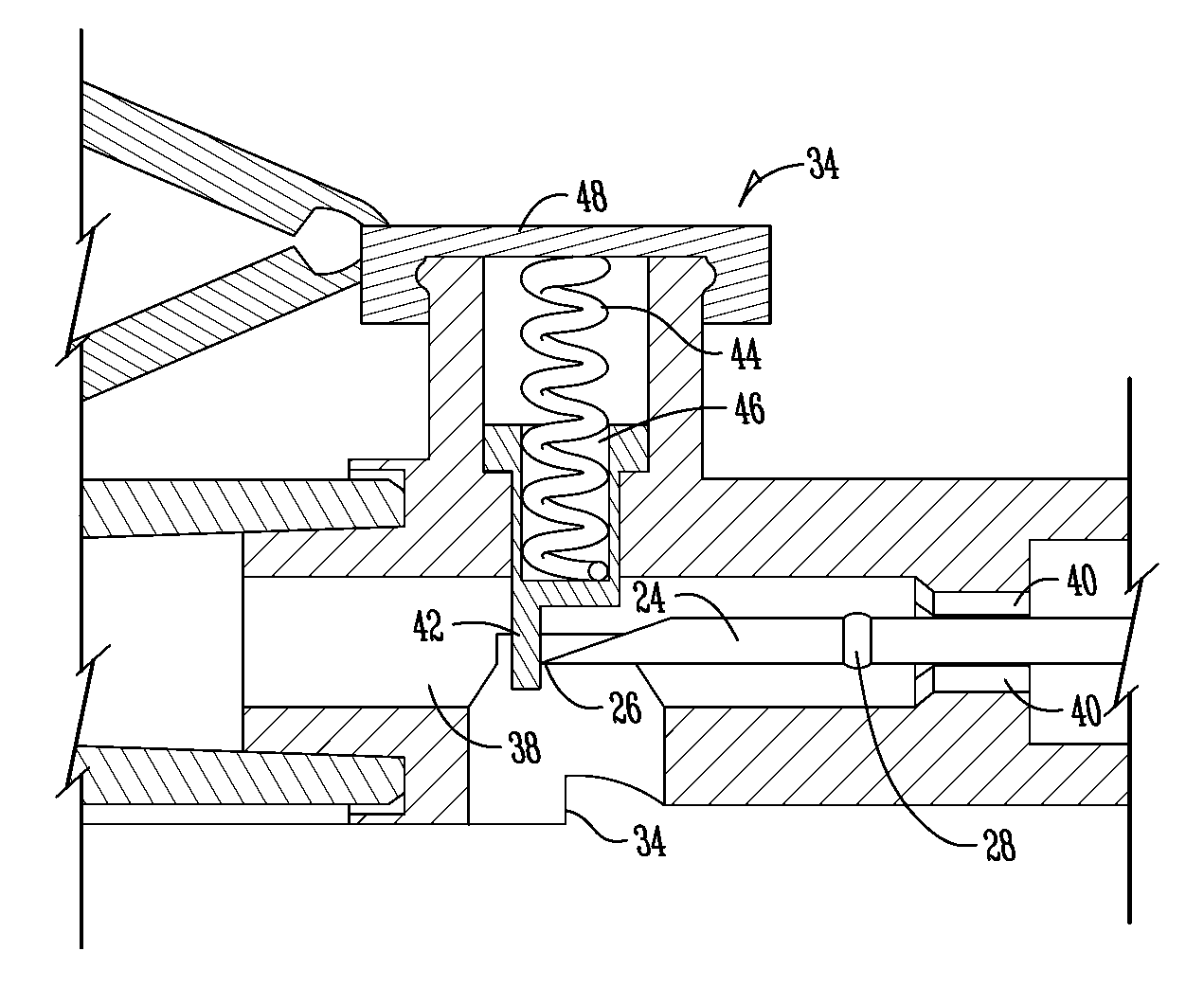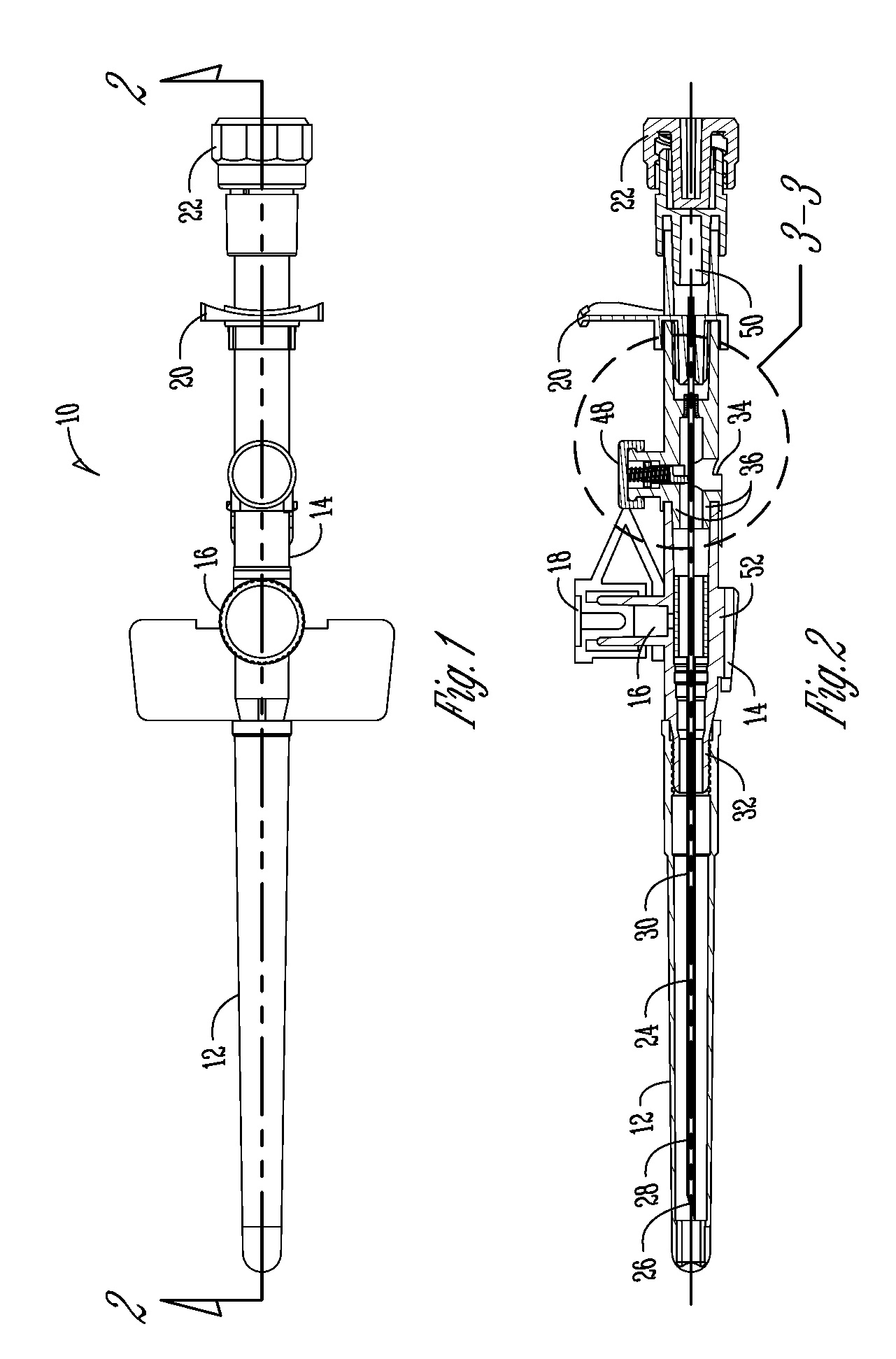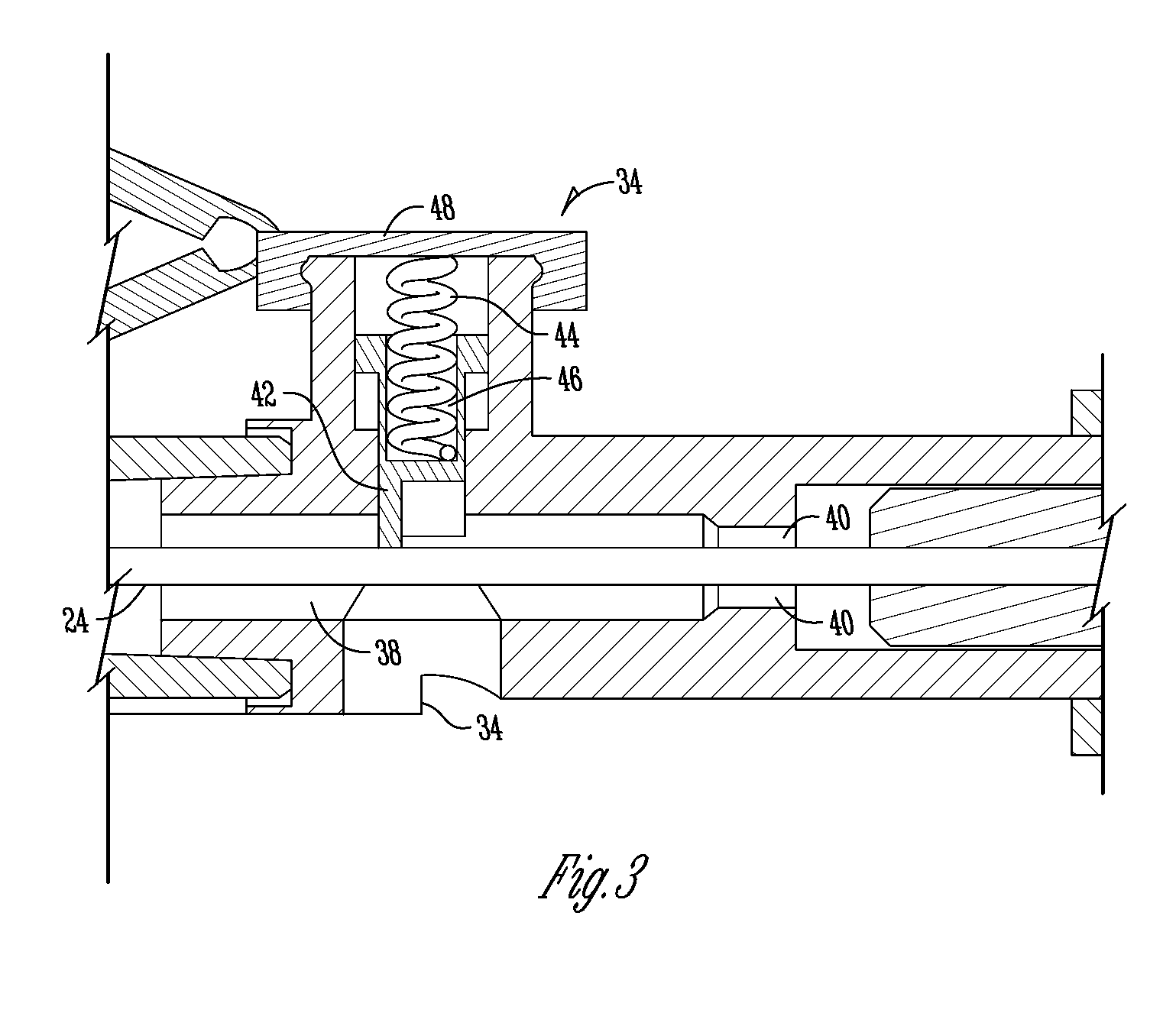Safety device to cover the needle tip of intravenous catheter apparatus
a safety device and catheter technology, applied in the direction of intravenous devices, guide needles, infusion needles, etc., can solve the problems of blood on or near the needle tip escaping from the needle guard, accidental pricking of used needles, and high risk of needle pricking
- Summary
- Abstract
- Description
- Claims
- Application Information
AI Technical Summary
Benefits of technology
Problems solved by technology
Method used
Image
Examples
Embodiment Construction
[0031]Referring to FIG. 1, an intravenous (IV) catheter apparatus 10 of the present invention is shown. It comprises of needle cover 12, wing housing 14, port 16 in unitary assembly with the wing housing 14 and needle hub 20. Luer lock 22 is removably attached to wing housing 14. The needle cover 12 covers the needle 24 (shown in FIG. 2). The needle hub 20 can be detached from the wing housing 14 such that the assembly of needle 24, needle hub 20 and luer lock 22 can be separated from the assembly of wing housing 14 and port 16, such as shown in FIG. 8A.
[0032]FIG. 2 is a cross sectional view of the IV catheter apparatus 10 which depicts a needle 24 extending from needle hub 20 through the wing housing 14 and ending at the needle tip 26 under the needle cover 12.
[0033]The needle 24 is hollow and the needle tip 26 is cut diagonally. There is needle flaring 28 which increases the diameter of the needle 24 near the needle tip 26. Surrounding the needle 24 is a catheter 30 which is attac...
PUM
 Login to View More
Login to View More Abstract
Description
Claims
Application Information
 Login to View More
Login to View More - Generate Ideas
- Intellectual Property
- Life Sciences
- Materials
- Tech Scout
- Unparalleled Data Quality
- Higher Quality Content
- 60% Fewer Hallucinations
Browse by: Latest US Patents, China's latest patents, Technical Efficacy Thesaurus, Application Domain, Technology Topic, Popular Technical Reports.
© 2025 PatSnap. All rights reserved.Legal|Privacy policy|Modern Slavery Act Transparency Statement|Sitemap|About US| Contact US: help@patsnap.com



